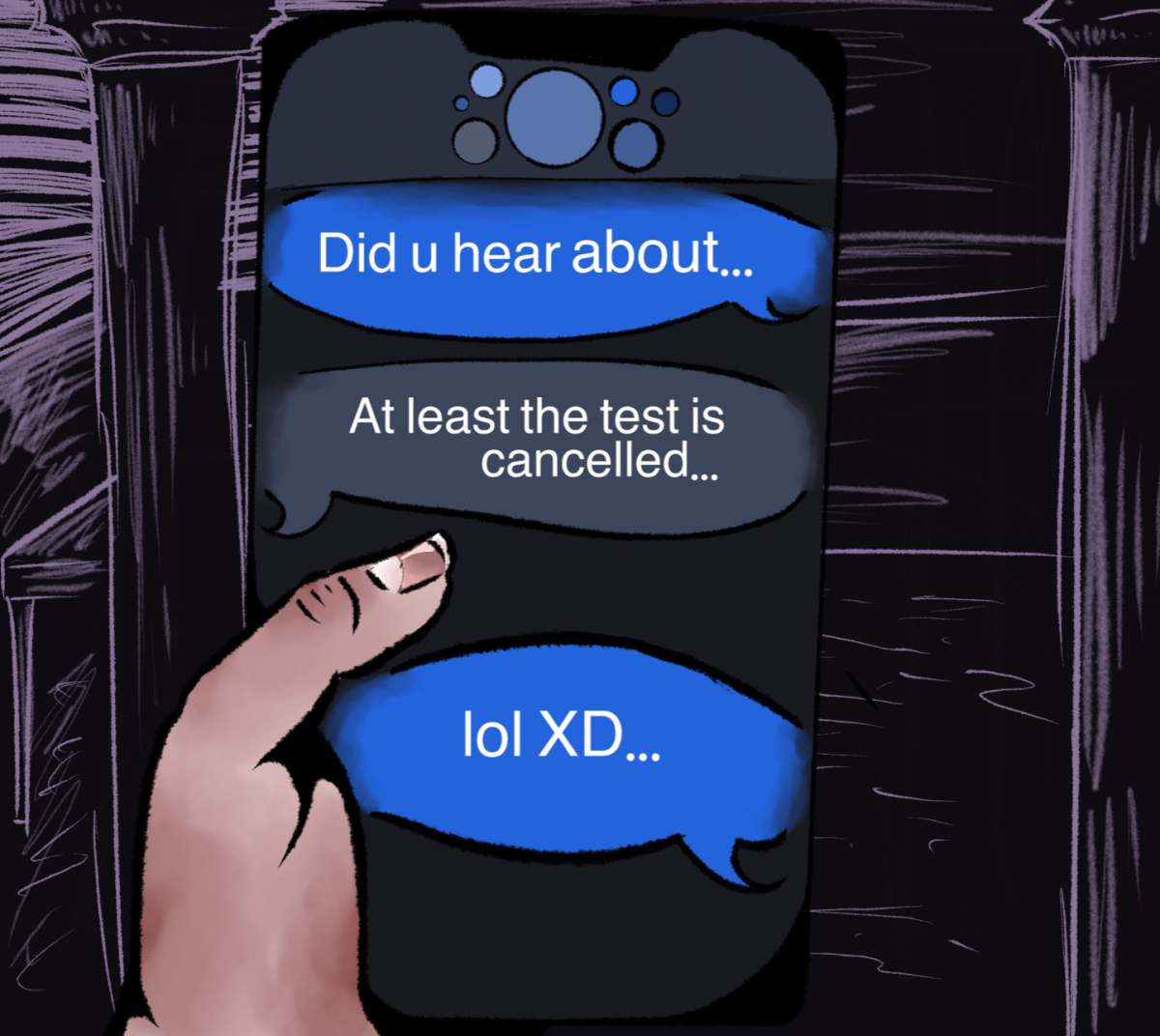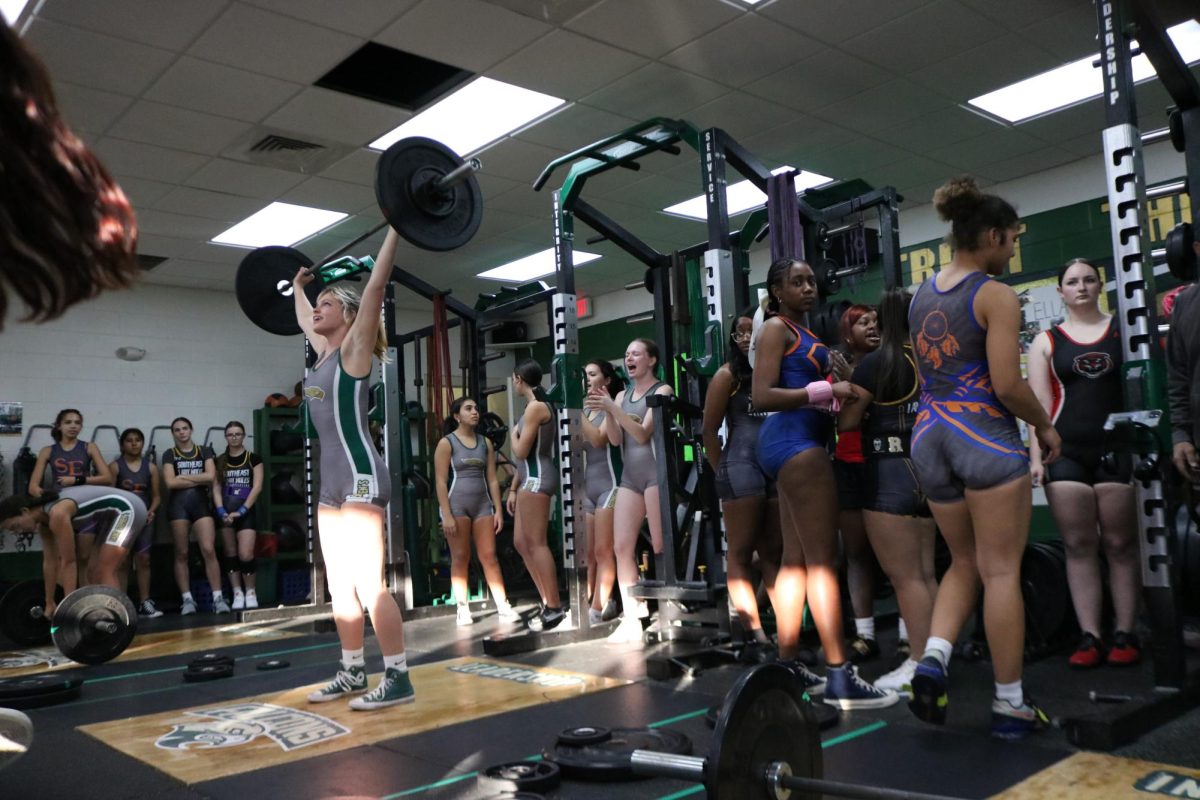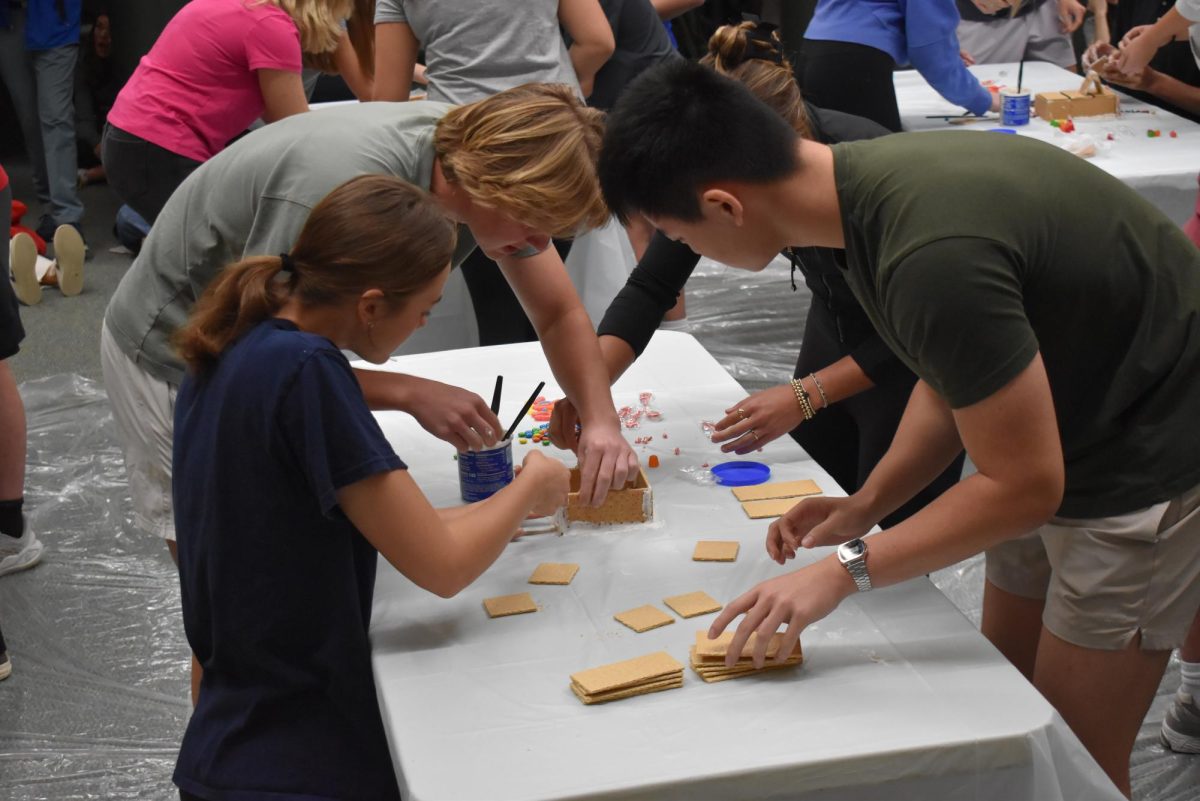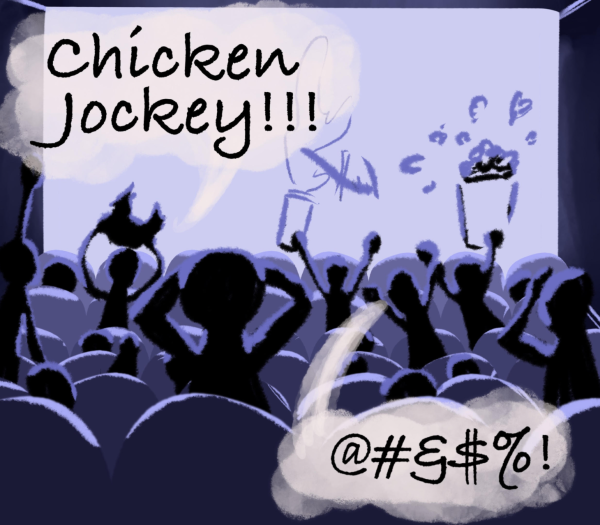Do you have a reputation?
Everyone has a reputation, but how do we really obtain them, especially at Saint Stephen’s? How do reputations work here? I did some searching, and this is what I found.
February 27, 2019
I’m sitting in bed, late on a Friday night with my iPad in my lap, half asleep with my dog Butterscotch next to me. My younger sister is sleeping across the room. I’m watching the movie Mean Girls on Netflix, when the montage of students talking about Regina George comes on.
They’re gossiping about things they’ve heard about her, not good things, when I start to wonder, “How did people come to know her like this?” Reputation, that’s how.
According to Merriam-Webster dictionary, a reputation is “Overall quality or character as seen or judged by people in general.”
My personal definition of reputation is a label—either positive or negative—that someone is given based on interests or things they’ve done.
Reputation is a hugely important aspect of student life on campus. It plays a major role in our lives, especially as a small school with big expectations. And it’s worth thinking about where it comes from, how it works, and how it affects us. Knowing this, I spoke with several students across campus, asking them about their definitions of reputation to get a broader view.
Junior Dylan Zoller said, “A reputation is the view people have on you. It’s the way you present yourself.”
Eighth grade student Paige Liebel responded by saying, “A reputation is what people know you for even if they’ve never met you.”
It’s human nature to label things, to put them in groups and simplify people and things. We grow up hearing kids called names, put into boxes, and we are too young to realize the impact of it. Take a typical Saint Stephen’s label: Teacher’s pet. If someone has a tendency to kiss up to teachers, they’re likely known as a teacher’s pet (forever), and they are probably seen as someone who gets good grades because of how much teachers loves them. The funny thing about our school is, when you get a label, it sticks. For a long time.
A lot of the time, being a “teacher’s pet” is seen as a negative thing, but I don’t think this one is really that bad. I think the reason for the negative connotation is how teacher’s pets are chalked up in TV shows, movies, and the media.
Bad reputations can stem from how you drive, how you dress, or partying habits. Especially with things like partying, bad reputations can make you seem irresponsible, and even sometimes childish. What’s more, when negative reputations end up on social media, they can seriously harm your chances of getting college acceptances or landing a job. Many employers and admissions offices look at someone’s social media before they offer them a spot.
Reputations are not just for people. Places or communities can also have reputations. From an outside perspective, the reputations of a typical Saint Stephen’s students varies, but one of the more common generalizations is that we “have a lot money.” I’ve heard the term “snotty rich kids,” used pretty often, and some kids say that students at Saint Stephen’s are stuck up. But are they? Will this always be our reputation? Are the reputations we have of other schools really right?
There are plenty of students at Saint Stephen’s who don’t fit this bill, like teacher’s kids and students on scholarships or students whose parents work really hard to get them here. But because of the label, even the students who are applying for all the college scholarships in the book, the students that know they’re going to have to pay for college tuition completely on their own, get this label, even though it doesn’t apply. It makes you wonder if our view of other schools are correct.
Reputations often lead to gossip, which in some cliques, spreads fast. Gossip is a problem at Saint Stephen’s, like other schools, and most of the time, when something gossip-worthy happens, most of the school knows about it within the hour. In some cases, one good or bad action could change your reputation within a day. And that’s really something that has to change, through understanding and through not talking badly about others, we can change this.
Also, here at SSES (and I’m sure in other places) it seems to be hard for people to keep secrets, even between their closest friends. From what I’ve seen, the problem seems to be an issue that affects a lot of people. It causes trust issues, when people are afraid to open up to their friends in fear that they’ll pass things on to the rest of the school. The solution to this would be to be careful with your friends words. Be careful not to spread them around.
If you end up as someone with a bad reputation in high school, it can be hard to get rid of that label. There are some people who gain a reputation their first year as a freshman, and after that, they are stuck for years, even if they change significantly. My suggestion, though, is to push through, make changes if you feel you need to, and things will be all right.
Most reputations wouldn’t be bad if it wasn’t for the media. TV shows, movies, and social media all make reputations that aren’t bad seem awful by exaggerating them. In TV shows and movies, if the character is a jock, they’re are most likely represented as self-conceited, idiotic jerks who doesn’t care about other people. A nerd is shy and thinks they’re smarter than everyone else. And cheerleaders are blonde, mean girls who are known for making other girls feel horrible about themselves and stealing other people’s boyfriends.
The reality of it is different. Jocks can be just as smart as nerds. Jocks can care for others and be the nicest people you know. A nerd can extroverted, and they may not think the world of themselves. A cheerleader can be one of the nicest people you’ll ever meet.
The media’s representations of groups have made it to the point where you are immediately judged on appearance, the people you are with, what you’re doing, and you’re given a label that isn’t all of who you are.
As someone who’s a part of Falcon Voices, mock trial, and who takes part in the musical every year, everyone knows I’m someone who loves performing and being in the spotlight. But that isn’t everything.
People also tend to know that school can be a struggle for me, largely due to my dyslexia.
A learning disorder like this affects my reputation, maybe causing people to think I’m not smart, so I know what it’s like to be viewed from this lens. But I don’t let reputation or others’ views stop me. I know that people who really know me know that I am smart despite what my reading and writing capabilities might be.
In the end, just because someone has a reputation doesn’t mean they are what you think. Take a look at how they treat people, how they interact with them, what they’re really like. That’s what ought to determine a reputation.


























































Nancy Hammer • Mar 4, 2019 at 5:10 pm
Very nice article …well written. Being 66 years old and looking back to my high school days, I still think of certain people as their reputation was then… so it sticks to one’s mind for sure. Sad but true… As you age, you realize that you have to look further into people and their background to make your own assessment.